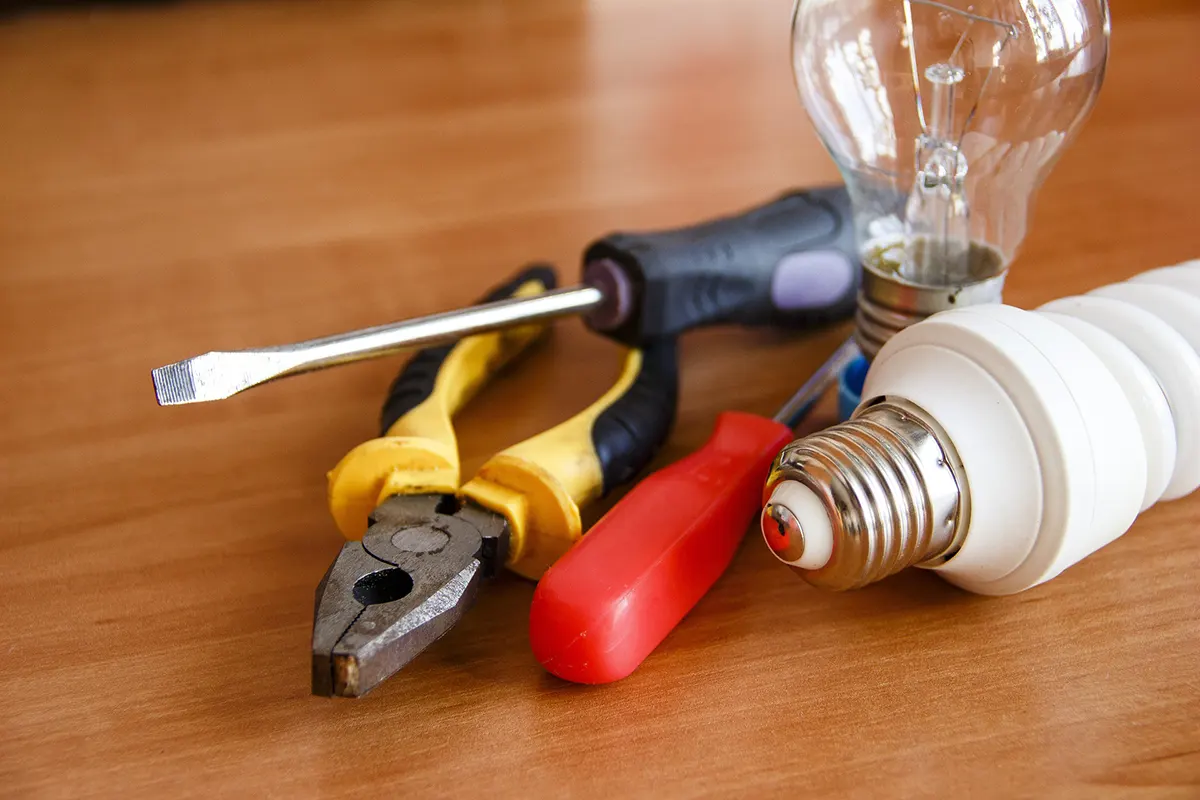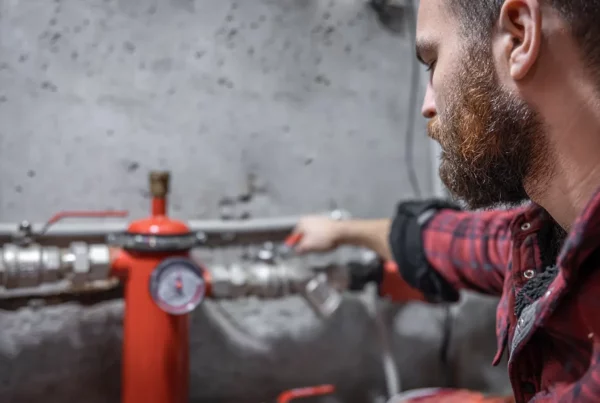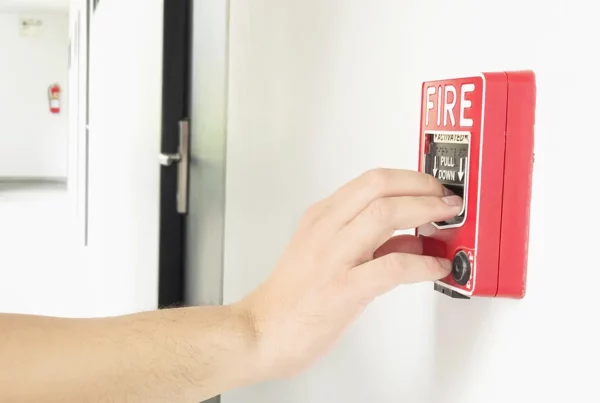
Almost every home has electrical wiring and electrical devices. Therefore, electrical safety at home is something that every resident should be aware of. While it may not seem a big deal, falling victim to an electrical accident can lead to injuries that may have long-lasting effects on your life or even cause death. Every year in the United States, over 500 people are killed by electrocution. This is more than all other accidents, including floods, tornadoes, hurricanes, etc. Most of these deaths do not occur because of direct contact with the wires but rather an indirect contact. It is important to be aware of the hazards associated with electricity and prevent electrical accidents. In this article, we will discuss electrical safety tips for homeowners. We will also provide information on maintaining your electrical system and keeping your family safe.
What are the electrical hazards at home?
Electrical hazards can occur when electricity flows through an object or your body. Electricity does not mean AC voltage only, but also any time there is a flow of electric charge, which includes DC. Without proper precautions, electricity can cause harmful effects in its path.
Electricity may be lethal if you touch it or go near where it has traveled. You should never touch an appliance plugged into an outlet unless you are sure it has been turned off completely, including the wall switch. Appliances have mandatory safety features to prevent people from touching hazardous voltages or currents. These devices are called Ground Fault Circuit Interrupters (GFCI). They are to detect when current travels in a different path other than through the appliance to which it is connected and cut the power before harmful electric currents can flow.
Plugging appliances directly into an outlet without a power strip or double adaptor is dangerous because if there is a problem such as overheating, sparks may result, which could allow electricity to travel through nearby objects such as carpets or drywall. This can then expose people or pets that walk on these surfaces to live electrical currents. It isn’t just about protecting yourself from getting electrocuted either; it’s also important to remember what voltages and currents electricity can cause when it flows through your body.
Electrical hazards are very dangerous and should be avoided by all means. Electrical accidents around the home happen every day. Most electrical accidents happen due to negligence or ignorance of homeowners, renters, or occupants. These people make mistakes like overloading sockets with too many plugs (extension cords) not using surge protectors; sometimes, they use faulty appliances/appliances with damaged wires, broken plugs, etc. Sometimes, it is always advisable for us to follow some precautions when using appliances like air conditioners, heaters, microwaves, ovens, etc. Their usage affects the current that flows through our bodies.
Electrical safety tips
Avoid overloading circuits
To check if an electrical circuit is overloaded, look at the electric meter on your house. If it’s running too fast, you’re using too much electricity. Then figure out what’s causing this and correct it.
Use extension cords temporarily, and only when necessary
Extension cords are convenient, but adding too many extensions increases the risk of electrical shock or fire. Use extension cords temporarily and only when necessary. Ensure cords do not run across doorways or under carpets where they can get damaged. Always replace or re-position the extension cord to avoid potential hazards.
Never attempt to repair electrical wiring yourself
You should never attempt to fix or repair live electrical wiring yourself. You may think you can handle something like a breaker, but the best option is to leave this kind of work to the professionals. Not only are they certified to perform any rewiring, but they also have extensive experience in spotting potentially dangerous conditions that could lead to problems down the line.
Use GFCIs
Kitchens and bathrooms are full of electrical hazards due to water and humidity. To stay safe in these rooms, use a GFCI. GFCIs protect the user from electrical shock in wet areas by shutting off electricity when any imbalance between electricity entering and leaving is detected. Install a GFCI in all wet areas, including bathrooms, kitchens, basements, and garages.
Turn off appliances when not in use
Turning off electrical appliances when not in use will prevent any electrical hazards. Electrical appliances can be a fire risk when not in use. Turning off appliances such as a toaster after use means that you won’t be putting your family at risk if something goes wrong, such as a power surge. This will also help you save money on your utility bills. In addition, it will help conserve resources and the environment.
Never use a cracked extension cord or frayed power strip
Do not use a cracked extension cord or frayed power strip. Replace when damaged. Also, keep the outlet or socket clean. Always unplug the plugs from the sockets after use to avoid overheating and fire hazards.
How to maintain your electrical system
The electrical system is put under tremendous pressure in modern homes as more and more electrical appliances are introduced into households. The primary users of electricity at home are the kitchen and bathroom. As a result, there is a greater need to keep these rooms well maintained and safe to use. Here are some basic tips on maintaining your home electrical system:
- Keep the outdoor panel switch off when not in use
- Prevent wetness in the outdoor panel switch
- Always keep less electricity usage to save your money.
- Always consult your electrician before doing any electrical work at home/office.
- Panel inspection should be performed annually or every other year, depending on the age and condition of the home’s service equipment.
- Use a surge protector for high-frequency devices like computers, LCDs, etc.
- Wire connections in your electrical panel should be tight with secured wire nuts.
- Check for discoloration in the wires or connections
- Do not overload outdoor panel switches
- Keep away from Flammable materials at least 1′ from outdoor panel switches
- Solar panels must always be installed by professionals
Importance of maintaining electrical safety at home
Electrical safety is vital both at work and home to avoid shock, electrocution, burns, fire, and explosions. A few basic electrical safety precautions can help you avoid accidents at home. When renovating your home, it is always a good idea to take all electrical safety precautions to ensure a safe and reliable power supply.
Maintaining electrical safety also prevents electrical failure. It’s estimated there are more than 39,000 home electrical fires every year. Preventing electric failure can be as simple as calling an electrician to evaluate the safety of a newly purchased home. Generator inspections and electrical systems maintenance can also help prevent these dangerous situations.
Maintain electrical safety at home to conserve energy and preserve your appliances. Conserving energy reduces pollution and preserves the environment. If many homes in one region conserve energy, the effect on the environment would be significant. Electric rates are rising largely because of overuse and waste.
Maintaining electrical safety at home helps to ensure the long-term health and longevity of your home’s most important systems, which can help you save money in the long term. Keeping up with routine maintenance extends the life of your electrical system and reduces the potential for electrical accidents, which can wreak havoc on your home, cause fires, or worse.









